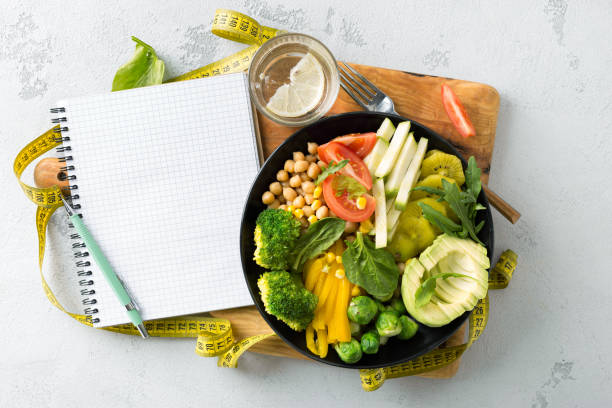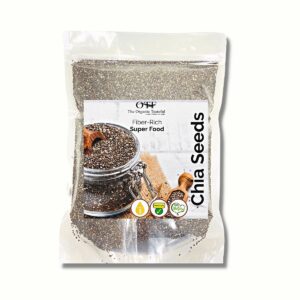Are you dealing with some troubles regarding dietary fibres for a healthy diet and dietary supplements?
Here are all the facts regarding dietary fibres such as what are dietary fibres? Diseases connected to insufficient-Fibre intake.

Dietary Fibres:
Dietary fibres are non-starchy polysaccharides that are resistant to digestive enzymes.
Soluble fibres help to reduce hunger by promoting the completeness of the stomach. The fibres such as sorbitol act as a lubricating agent commonly present in prunes.
You Can Also Read What role do Dietary fibres play in our Body?
Role of Dietary Fibres in Diabetes Mellitus Management.
Important Sources of Dietary Fibres:
Cereals and whole grains: barley, wheat, bajra, ragi, quinoa, jowar, maize, and brown rice.
Oil Seeds and Nuts: walnuts, almonds, sesame, fenugreek, mustard, gingelly seeds.
Legumes and Pulses: lentils, soybeans, black grams, broad beans, Bengal grams, red gram, green gram, chickpeas, cluster beans, and pinto beans.
Other Vegetables: cluster bean, broad bean, brinjal, and giant chillies.

bitter gourd, bottle gourd, ladies finger, snake gourd, onion stalks.
Fruits: guava, custard apple, Cherry, banana, mangoes, amla, apples, sapota, figs, dates, currants, pears, guavas, oranges, plums, citrus fruits, strawberries, blueberries, kiwifruits and raspberries.
Root vegetables: beetroot, yams, radish, potato, colocasia, carrots and sweet potatoes.
Green Leafy vegetables: Agathi, lettuce cabbage, spinach, mint, cabbage, curry leaves, amaranth, broccoli, drumstick leaves, ponnanganni, paruppu Keerai.
Diseases connected to Insufficient-Fibre Intake:
Some diseases associated with inadequate fibre intake include:
- Obesity and Overweight.
- IBS(Irritable Bowel Syndrome).
- Bowel cancer.
- Haemorrhoids and Fissures.
- Breast cancer.
- Diverticulitis.
- Diabetes.
- Cardiovascular disease.
- Hypertension.
- SIBO(Small Intestine Bacterial Overgrowth).
Recommended Dietary Fibres Intake:
The Recommended dietary fibres intake for a healthy diet new suggestions furnished by USDA:
- Women 51 years or above: 22 grams per day.
- Men 51 years or above: 28 grams per day.
- Women below 50 years: 25 to 28 grams per day.
- Men below 50 years: 31 to 34 grams per day.
- Children (4 to 8 years): 18 grams per day.
- Boys ( 9 to 13 years): 24 grams per day.
- Boys (14 to 18 years): 28 grams per day.
- Girls(9 to 13 years): 20 grams per day.
- Girls (14 to 18 years): 22 grams per day.
Tips for adding more dietary fibre to the diet:
- Add extra fruits and vegetables regularly to your diet.
- Switch whole grains or whole meals.
- Add fruits, nuts, oilseeds and dried fruits to everyday snacks.
- Consume plain oatcakes, multigrain bread, whole wheat products and brown rice.
- Add beans(kidney, navy, broad, cluster and pinto) legumes to your regular diet.
- Add berries, nuts and seeds (pumpkin) to the diet.
- Add non-starchy vegetables such as lettuce, spinach and broccoli.
Advantages of Consuming dietary fibres:
Some of the advantages of consuming dietary fibres include:
- Enables maintaining blood cholesterol.
- Helps to reduce the risk of developing Anal tissues and haemorrhoids.
- Supports maintaining type 1 and type 2 Diabetes.
- Advantages for proper weight management.
- Benefits to prevent colorectal cancer.
- Benefits for hormonal management for glucose metabolism.
- Assists to maintain regular bowel movements.
- Avoid the possibility of chronic heart disorders.
- Helpful for detoxifying the body by removing harmful toxic substances.
- Useful to relieve the symptoms of constipation, IBS and diverticula.
- Helps to boost the activity of friendly bacteria.
- Promote fullness to the stomach (satiety)and prevent constant eating.
- Helpful for reducing intracolonic pressure.
Possible side effects of overconsumption of dietary fibres :
Overconsumption of Dietary fibres may cause some common symptoms including:
- Diarrhoea.
- Weight loss or weight gain.
- Stomach discomfort.
- Dehydration.
- Indigestion and loose stools.
- Flatulence.
- Constipation.
- Bloating.
- Burping.
- May hinder the absorption of nutrients.
- Feeling too full.
- Production of Unwanted gasses.
The dietary fibres play a significant role in bowel help, the fermentable fibres are produced short-chain fatty acids such as butyrate(which acts as antineoplastic means cancer-preventing agents) acetate and propionate that helps to expand the colon wall and clear the digestive tract.
Explore More Organic Healthy Food Products On “FOODVEZ”
Stay Healthy.



